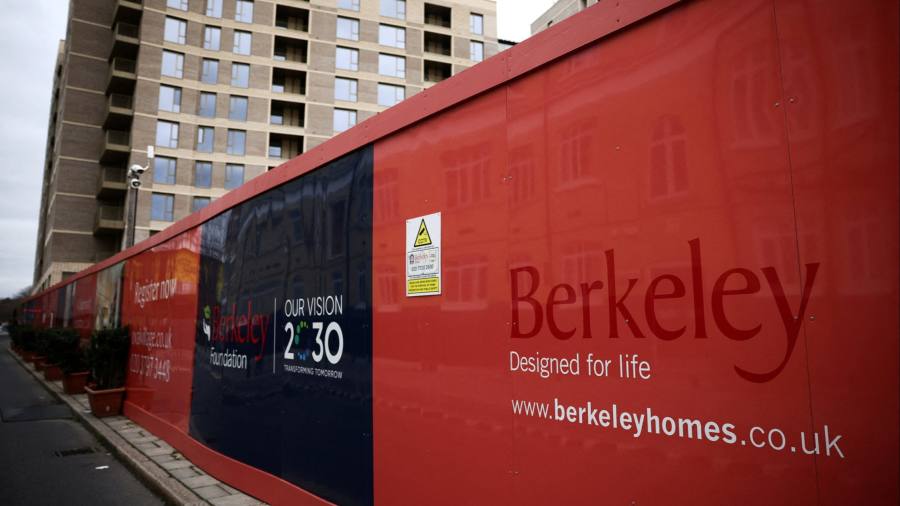UK housebuilder Berkeley warned its sales would fall another 20 per cent over the coming year if stubbornly high inflation and rising mortgage rates kept the housing market on an uncertain footing.
The FTSE 100 group, one of London’s largest housebuilders, said on Wednesday that sales of new properties decreased 15 per cent on a like-for-like basis in the year to the end of April, compared with the year before, and flagged a further slowdown if current market conditions persisted.
Rob Perrins, chief executive, said the property market would continue to struggle until people felt certain that interest rates had stabilised. “There is a lack of confidence at the moment . . . People hate the transition period,” he said.
His comments came as data showed UK inflation remained higher than expected at 8.7 per cent in May, adding to pressure on the Bank of England ahead of a policy announcement on Thursday. Financial markets expect interest rates to peak around 5.8 per cent early next year.
Stubbornly high inflation has prompted a sharp rise in mortgage rates in recent weeks, adding to the pain for the housing market. The average cost of a two-year fixed-rate mortgage rose above 6 per cent on Monday.
“Over the last two months, inflation has replaced the mini-Budget as the biggest obstacle facing the UK housing market,” said Tom Bill, head of UK residential research at Knight Frank.
Perrins said the recent changes were “delaying” a recovery in home sales. He said cash buyers and those who had to move because of life circumstances were still active, but others were holding back.
“We have seen a lot of people delaying their transaction,” Perrins said.
Berkeley cut its long-term earnings guidance and slowed development plans late last year after the fallout from the autumn “mini” Budget hit the property sector. In its annual results, the company reported pre-tax profits rose 9.5 per cent to £604mn in the year to April and stuck to its forecasts.
Shares fell 2 per cent in early trading alongside other housebuilding stocks, which dipped following the higher than expected inflation figure.
However, Perrins said inflationary pressure in the company’s supply chain was slowing down. “We are pretty well seeing inflation out of the system now,” he said. UK supermarkets have also seen price increases moderate, according to data on Tuesday.
Official inflation statistics were lagging behind what the company was seeing on the ground, Perrins said, but acknowledged that home sales would not recover until there was clarity on when interest rates would peak.
Read the full article here




